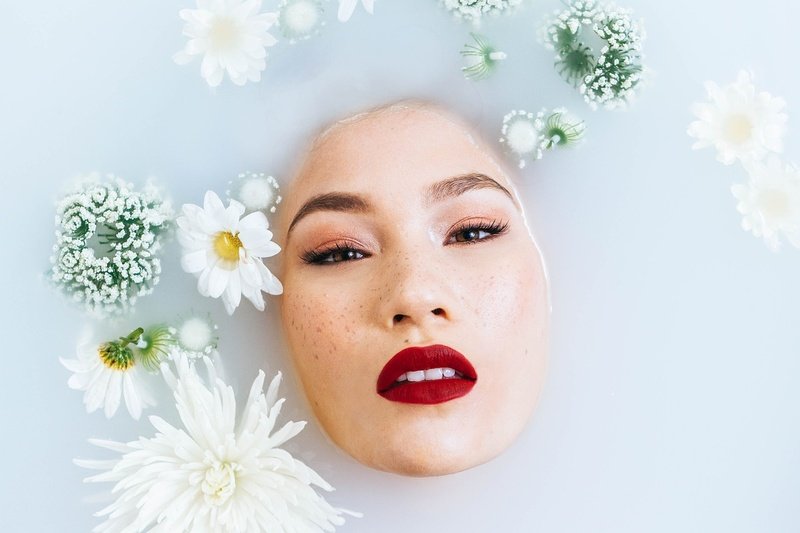Acne is a common skin condition that affects millions of people worldwide. Characterized by pimples, blackheads, and whiteheads, acne can be frustrating and difficult to manage. While there is no surefire way to prevent acne altogether, preventing acne through skincare offers many steps to minimize outbreaks and keep your skin clear and healthy. In this blog, we will explore the various factors that contribute to acne and provide useful tips for preventing and managing acne.
Understanding Acne
Before delving into prevention strategies, it’s important to understand what causes acne. Acne develops when hair follicles become blocked with oil and dead skin cells, leading to the growth of bacteria and subsequent inflammation. Hormonal changes, genetics, and certain medications can all influence the likelihood of developing acne. Additionally, excessive oil production, inadequate exfoliation, and the use of pore-clogging skincare products can exacerbate the condition.
Preventing Acne Through Skincare
Establishing a consistent skincare routine is essential for preventing acne. Start with a gentle facial cleanser that is suited for your skin type. Thorough cleansing twice a day – morning and night – will help remove excess oil, dirt, and dead skin cells that can clog pores.
Exfoliation is another key step in preventing acne. Regular exfoliation removes the buildup of dead skin cells, which can contribute to clogged pores and acne breakouts. Choose a gentle exfoliator and use it 2-3 times a week to maintain a clear complexion without irritating the skin.
In addition, moisturizing is important, even for those with oily or acne-prone skin. Opt for a non-comedogenic moisturizer, meaning it won’t clog pores, to keep the skin hydrated without exacerbating acne.
Acne Prevention Through Diet
The saying “you are what you eat” holds true when it comes to skin health. Thus, a balanced, nutrient-rich diet can play a significant role in preventing acne. Foods high in refined sugars, such as candies and sugary drinks, can increase insulin levels and promote inflammation, contributing to acne development. Processed and greasy foods have also been linked to aggravating acne.
Conversely, a diet rich in fruits, vegetables, whole grains, and lean protein can help maintain healthy skin. These foods provide essential vitamins, antioxidants, and nutrients that support skin health and reduce inflammation. Ultimately, this helps to minimize acne outbreaks. Additionally, staying adequately hydrated by drinking plenty of water supports overall skin health.
Managing Stress for Acne Prevention
Stress is a known trigger for acne flare-ups, as it can disrupt hormone levels and increase oil production in the skin. Finding healthy outlets to manage stress can significantly contribute to preventing acne. Engaging in regular physical activity, practicing mindfulness or meditation, and indulging in hobbies and activities that bring joy can all help alleviate stress and subsequent acne breakouts.
Skincare Products for Acne Prevention
When choosing skincare products, it’s important you select those that are labeled as non-comedogenic or non-acnegenic. These products are formulated to minimize the likelihood of clogging pores and should be a staple in your skincare regimen. Ingredients like salicylic acid, benzoyl peroxide, and retinoids are known for their acne-fighting properties and can be beneficial in preventing and treating acne.
It’s crucial to note that introducing new skincare products should be done gradually to minimize the risk of skin irritation and adverse reactions. Additionally, if you have sensitive skin or existing skin conditions, consultation with a dermatologist before introducing new products is advisable.
Hands Off for Acne Prevention
Touching your face frequently can transfer dirt, oil, and bacteria from your hands to your skin, potentially exacerbating acne. Refrain from touching your face, especially with unclean hands, and avoid picking or squeezing acne lesions, as this can lead to scarring and further inflammation.
Acne Prevention through Hair and Makeup Practices
Hair products, such as styling gels and oils, can transfer to the skin and clog pores, leading to acne. Regularly washing your hair and minimizing the use of pore-clogging hair products can contribute to preventing acne. When it comes to makeup, choose non-comedogenic products and ensure proper makeup removal before bed. These measures can help avoid clogged pores and subsequent breakouts.
Seeking Professional Treatment and Support
If you have persistent or severe acne, seeking the guidance of a dermatologist is essential. A dermatologist can provide personalized treatment plans. These may include prescription medications, topical treatments, or professional skincare procedures, to manage and prevent acne effectively.
In conclusion, preventing acne requires a multifaceted approach that includes establishing a consistent skincare routine, making dietary and lifestyle adjustments. it is also critical that you use the right skincare products. While these strategies can help minimize the likelihood of acne breakouts, it’s essential to remain patient, as results may take time to manifest. With dedication, persistence, and potentially the guidance of a dermatologist, you can take proactive steps to prevent and manage acne, promoting clear and healthy skin.
 Say thanks to 5882641
from pixabay
Say thanks to 5882641
from pixabay